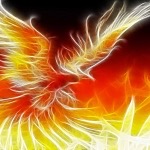|
Problem description: Yesterday, my computer decided that it would freeze up and stop working. After attempting a restart, the screen post-BIOS reported that the Hard Disk was unreadable. After a few additional restarts (attempting to find the safe mode button), the post-BIOS screen stopped reporting that and started booting the OS. Very Slowly. An hour later, I was able to sign in and reach the desktop. A half an hour after that, I had normal control over the mouse again, even though no icons on the desktop were loaded (or the theme/wallpaper). The start menu bar was there, but Windows Explorer had crashed, so it was useless. Keyboard commands did nothing. I had a couple of "Out of Memory" errors on the desktop, even though no programs were running. Attempted fixes: Many restarts, attempting to wait for the desktop to load to look at the error log (it never loaded,) Using Windows Disk Repair Tool, Safe Mode. I booted from Windows Defender Offline to see if I could find anything (even though the conditions during which the error occured didn't resemble an infection). Running the Quick Scan found nothing, and the full scan resulted in Windows Defender crashing and saying something about being disabled. (Either the cause of a virus or it tried to scan a corrupted file and broke.) Any subsequent attempts at booting from WinDef failed. Following this, the Windows Disk Repair tool came up and "fixed" something, though it never told me what. Trying to run WinDef after that gave a different error. Recent changes: Downloaded an official torrent of a mod on Nexus Mods (just a free texture mod for Mass Effect; the mod was the highest rated Mass Effect mod on the site with no comments describing any problems of this type). Downloaded a torrent of Debian. I had followed a repair guide on trying to fix SweetFX which required copying a DX file from Sys32 to the Mass Effect folder. Sys32 was not modified, nor was the copied file. I had problems with Mass Effect launching oddly, crashing and the like. The problem occurred close after force-quitting the game if I'm remembering correctly. One of my sticks of RAM had failed a month earlier (with no issues- it just didn't show up), so I replaced it with an entirely different stick. Changing the combination of different RAM sticks does nothing. My guess is that a corrupted file is causing the issues, though an infection cannot be ruled out. -- Operating system: Windows 10 x64 System specs: Custom-Built Computer Motherboard: Something from Gigabyte; I'll update this later when I get back. Processor: Intel I7 930 GPU: NVidia GTX 460 RAM: 12 Gig Hard Drive: Generic; I'll update this later. Power Supply: Generic; update later. Location: United States I have Googled and read the FAQ: Yes Edit: Trying to boot from WinDef gives me the error code of "0x800703f9" I'm not against nuking the OS and starting over (after I copy a couple of items out), but I need to determine whether it's infected to know whether I should reset all of my passwords. .. I can get the computer to a black screen + cursor, but nothing past that. Changing video cards doesn't help. Neither does any of the standard suggestions I've found. Carsius fucked around with this message at 17:50 on Feb 3, 2016 |
|
|
|

|
| # ? Apr 25, 2024 18:43 |
|
Your hard drive has almost certainly failed.
|
|
|
|
Alereon posted:Your hard drive has almost certainly failed. That's what I was afraid of. I guess it gives me a good reason to get an SSD sooner than I had planned. Is there any good way to tell why it failed? (just to rule out an infection). Thanks for the insight.
|
|
|
|
You can confirm a harddrive failure by running a program such as Crystal Disk Info that can read the drive's SMART error logs. Drive failures are due to mechanical or electrical component failures and can't be caused by malware.
|
|
|
|
Running the SMART command line check from the CMD (the built-in check) returns all "OK"s. Not sure how I'm to access the external program without loading the OS. In addition, chkdsk seems to proceed normally with no errors. Carsius fucked around with this message at 23:38 on Feb 3, 2016 |
|
|
|
Do you have access to a working system you can connect the drive to to run CDI? There are no tools built into Windows that can check the health status of a harddrive, merely whether it is throwing the SMART pre-failure warning (which despite its name only occurs so long after the failure as to almost never occur in practice before the drive has been replaced). Otherwise, the drive manufacturer will likely offer a bootable diagnostic utility from their website, or you could use a Linux LiveCD to run a utility that can check the SMART error logs.
|
|
|
|

|
| # ? Apr 25, 2024 18:43 |
|
Alereon posted:Do you have access to a working system you can connect the drive to to run CDI? There are no tools built into Windows that can check the health status of a harddrive, merely whether it is throwing the SMART pre-failure warning (which despite its name only occurs so long after the failure as to almost never occur in practice before the drive has been replaced). Otherwise, the drive manufacturer will likely offer a bootable diagnostic utility from their website, or you could use a Linux LiveCD to run a utility that can check the SMART error logs. Yep, the hard drive is definitely dying. I had a LiveCD lying around, and using the Seagate HDD checker on there confirmed it. To the point that it wouldn't let me even run a full short or long scan. I generally back up all of my important data, so it's not a big deal to lose it; I was mostly worried about the possibility of malware. Now for a futile attempt to recover the little data that I still want. Thanks for the help!
|
|
|




